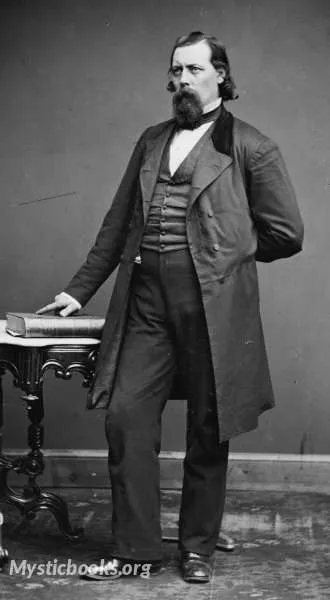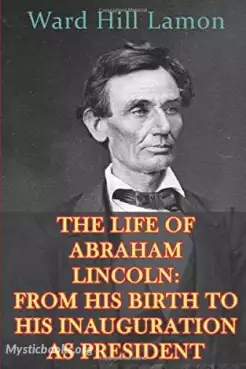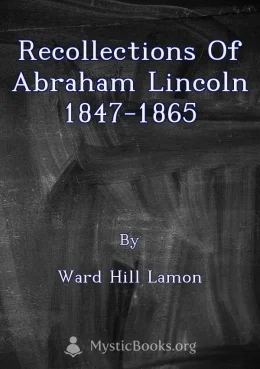
Timeline
Title
Country/Nationality
Ward Hill Lamon
Ward Hill Lamon was a personal friend and self-appointed bodyguard of U.S. President Abraham Lincoln. Lamon was famously absent the night Lincoln was assassinated at Ford's Theatre on April 14, 1865, having been sent by Lincoln to Richmond, Virginia.
Lamon's family name was spelled by some relatives with an "e" and by others with an "a", and was pronounced as "lemon" regardless of spelling. Lamon's relationship with Lincoln has been traced by Clint Clay Tilton in Lincoln and Lamon. Lamon was born near Winchester, Virginia, studied medicine for two years, and moved to Danville, Illinois, when he was 19 to live with relatives. He attended the University of Louisville to receive his law degree and was admitted to the Illinois bar in 1851. In 1850, he moved back to Virginia, married Angelina Turner, and then returned to Illinois to practice law. Angelina was a daughter of Ehud and Priscilla Strode Turner, whose house at Beddington, West Virginia, was listed on the National Register of Historic Places in 2002 as the Priscilla Strode Turner House. Angelina died in April 1859, leaving a daughter, Dorothy, who was raised in Danville by Lamon's sister, Mrs. William Morgan. In November 1860, Lamon married Sally Logan, daughter of Judge Stephen T. Logan. Logan had been Lincoln's law partner from 1851 to 1854.
Lamon's professional association with Lincoln started in 1852. Lamon became the prosecuting attorney for the Old Eighth Judicial district and subsequently moved to Bloomington, Illinois, in 1858. While Lamon had Southern sympathies and his hatred of abolitionism set him apart from Lincoln, they remained friends, despite their very different characters. Lamon joined the then-young Republican Party and campaigned for Lincoln in 1860.
Lamon was a physically imposing man, and during the presidency, often took it upon himself to guard Lincoln. In February 1861, detective Allan Pinkerton uncovered a plot whereby Lincoln would be assassinated when he arrived in Baltimore on his way to his inauguration in Washington. Pinkerton advised Lincoln that rather than ride publicly through the city between train stations as planned, he should take a midnight train straight through to Washington. Lamon was the sole friend chosen to accompany him.
Lincoln was secreted through Baltimore during the night. The train carrying Mrs. Lincoln and others went through Baltimore unharmed the next day, despite the claim of Pinkerton that hand grenades and firebombs would be used to attack the train.
Lamon summed up his disbelief in the plot in the biography: "It is perfectly manifest that there was no conspiracy, – no conspiracy of a hundred, of fifty, of twenty, of three; no definite purpose in the heart of even one man to murder Mr. Lincoln in Baltimore."
Shortly after his inauguration in 1861, Lincoln appointed Lamon United States Marshal of the District of Columbia; he resigned his commission in June 1865. One of Lamon's first acts as Marshal was to visit Fort Sumter, South Carolina in March 1861, to meet with Major Robert Anderson, commander of the fort, and Governor Francis Pickens. Reports vary on Lamon's responsibilities with regard to that visit.
One account chronicles that Lamon was just one of a few emissaries sent by Lincoln, the first being Captain Gustavus Fox, who went to determine if Fort Sumter could be relieved by sea. Lamon was sent concurrently with another Illinois friend of Lincoln's, Stephen Hurlbut, with the implication that Lamon was sent to take the focus off of Hurlbut's visit as Hurlbut was there to measure anti-Union sentiment in Charleston (he discovered it was high). Lamon incurred Lincoln's displeasure by meeting with Governor Pickens and informing him of the government's interest in withdrawing from Fort Sumter.
Lamon had tendered his resignation as Marshal of the District of Columbia in June 1865. In April 1866, Lamon purchased the funeral rail car that transported Lincoln's remains to Springfield, Illinois. The price he paid for the rail car was a little less than $10,000. He was offered the cabinet position of Postmaster General but declined. He formed his law partnership with Jeremiah Black (referenced above), and the law practice dissolved in 1879 due to the poor reception of The Life of Lincoln ghostwritten by Black's son Chauncey. In 1879, Lamon and his wife Sally moved to Boulder, Colorado, and later to Denver where he formed a friendship with poet Eugene Field. The ill health of both Lamon and Sally caused them to return to Washington in 1886, and in 1889, they traveled to Europe for the spas and subsequently Sally died in Brussels in 1892.
Books by Ward Hill Lamon

The Life of Abraham Lincoln
Ward Hill Lamon's work is a study of the life of the 16th President of the United States of America from his childhood to the day of his first inauguration. Lamon, who worked with Lincoln during his administration, and who had access to the papers of...

Recollections of Abraham Lincoln 1847-1865
Abraham Lincoln's presidency was a tumultuous time in American history, marked by the Civil War and the struggle to preserve the Union. His journey to his inauguration was fraught with danger, and once in office, he faced a barrage of political chall...